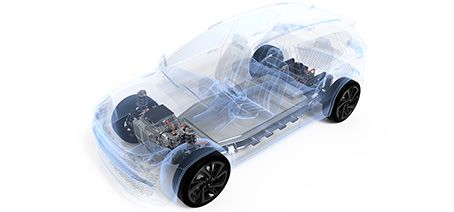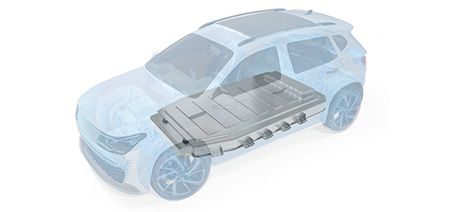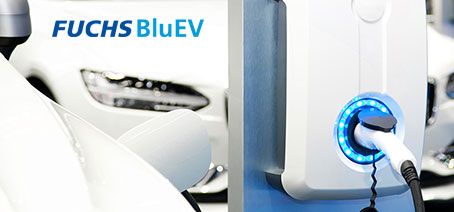E-mobility solutions for hybrid electric vehicles (HEV/PHEV)
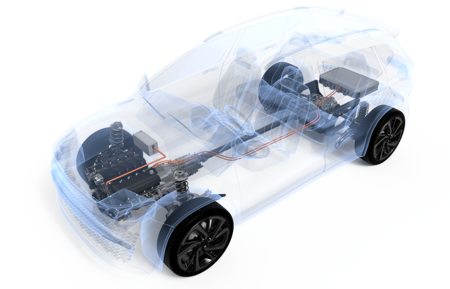
Hybrid vehicles play a transitional role on the path to carbon neutrality, as they reduce fuel consumption and CO₂ emissions compared to pure combustion engines, but are not emission-free in the long term. They function as a bridging technology that enables CO₂ savings while the charging infrastructure and battery and charging technology continue to develop.
There are various hybrid technologies that aim to reduce fuel consumption and emissions by combining combustion engines with electric motors.
The different hybrid types are geared towards specific driving needs. Depending on the level of hybridization, they differ in their electric range and charging options.
Overview of the most common hybrid technologies
level of hybridization | Electric drive range | Charging option | |
Mild Hybrid (MHEV) | low | very low to none | none (partly recuperation) |
Hybrid Electric Vehicle (HEV) | average | low | Recuperation |
Plug-in Hybrid Electric Vehicle (PHEV) | high | average | Power socket / charging station |
Special requirements for lubricants for hybrid drives
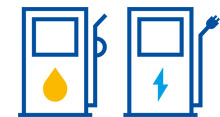
Due to the interaction of both drive types, special requirements arise for the required lubricants:
- Frequent start/stop operation of the combustion engine
- High temperatures and thermal loads on electrical components
- Insulation of electrical contacts
- Different properties of electrical and mechanical components of a hybrid transmission
Lubricants for hybrid vehicles must therefore not only be more resistant, but also electrically insulating, thermally stable and compatible with various materials compared to the lubrication of conventional combustion engines.
As a leading lubricant partner, FUCHS has worked with the automotive industry to develop customized products that meet the specific requirements of hybrid vehicles and contribute to their efficiency, durability and safety:

Dedicated Hybrid Transmission Fluids (DHTF)
Transmission fluids for hybridized dual-clutch transmissions are tailored to the requirements of both mechanical and electrical drive components. They are specially designed for the high loads, protection of all components and the efficiency requirements of hybrid transmissions, e.g.:
- Friction coefficient behavior
- Copper compatibility
- Conductivity
- Oxidation stability
- Wear and bearing protection
Highlights of the FUCHS BluEV portfolio:

Thermal Management for battery & engine
In hybrid vehicles, cooling of the battery and the electric motor is crucial for the performance, service life and safety of the drive system. This is often achieved using a combination of air and liquid cooling. The battery is usually cooled in liquid form or with the help of an air conditioning system, as this enables precise and even temperature control.
Cooling of the electric motor depends on the design and performance of the hybrid system, with liquid-based systems offering the best heat dissipation and ensuring consistent performance at high temperatures.
Highlights of the FUCHS BluEV portfolio:

Greases for highly demanded components
Hybrid vehicles require special lubricating greases that are not only thermally stable and resistant to oxidation, but also support the safety and efficiency of the electrical components.
Electrically insulating (dielectric) and thermally stable high-temperature greases play a key role in meeting the special requirements of high-voltage and high-temperature applications. These special greases help to increase the longevity and efficiency of vehicles and optimally meet the specific requirements of a hybrid drive.
Highlights of the FUCHS BluEV portfolio:
FUCHS solutions for the future of mobility
Future mobility lubrication: Products exclusively for EV/HEV applications
Products that are compatible with both conventional and EV/HEV applications
Sustainability meets Performance: Products based on renewable materials
Driving the future of mobility with advanced electrolyte solutions

What about your challenges?
Let us know how we can support you with lubricant solutions for e-mobility.
Thomas Kraft (Business Development Manager E-Mobility) is looking forward to your questions.





